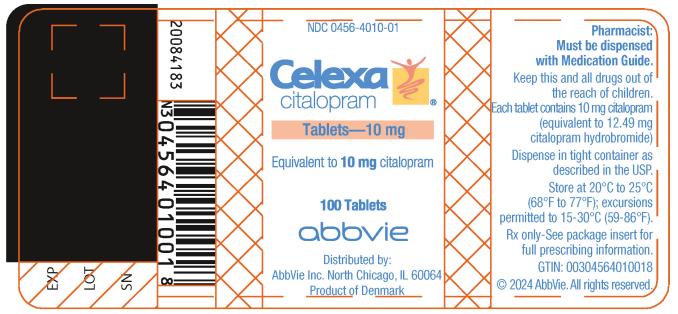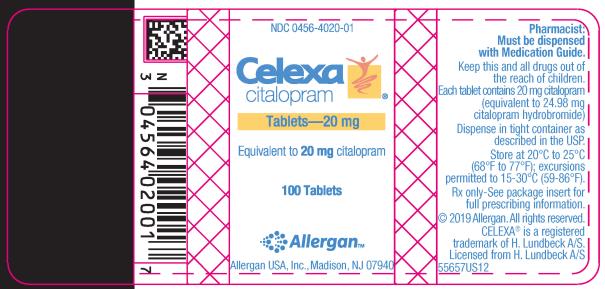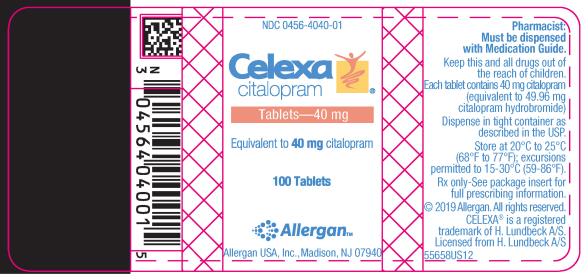
Celexa | Citalopram Tablet while Breastfeeding
What is Celexa | Citalopram Tablet used for?
I am breastfeeding mother and I am using Celexa | Citalopram Tablet. Can it have any bad effect on my kid? Shall I search for better alternative?

Nursing Mothers As has been found to occur with many other drugs, citalopram is excreted in human breast milk. There have been two reports of infants experiencing excessive somnolence, decreased feeding, and weight loss in association with breastfeeding from a citalopram-treated mother; in one case, the infant was reported to recover completely upon discontinuation of citalopram by its mother and in the second case, no follow-up information was available. The decision whether to continue or discontinue either nursing or Celexa therapy should take into account the risks of citalopram exposure for the infant and the benefits of Celexa treatment for the mother.
Celexa | Citalopram Tablet Breastfeeding Analsys
Citalopram while Breastfeeding
SafeCAS Number: 59729-33-8
Excretion into breast milk is low. Serum levels of infants from treated nursing mothers have been shown to be very low. Overall, short or long-term harmful effect has not been reported among breastfed infants. Neither negative effect on growth nor psychomotor development has been observed in breastfed infants. Galactorrhea associated or not to hyperprolactinemia, may appear. Although it is considered to be safe while breastfeeding, an alternative with lesser excretion into breast milk should be preferred. Women who are on antidepressant treatment during pregnancy are in need of special and intensive support for breastfeeding because of a high risk of early weaning.
Celexa | Citalopram Tablet Breastfeeding Analsys - 2
Citalopram while Breastfeeding
CAS Number: 59729-33-8

Infants receive citalopram in breastmilk and it is detectable in low levels in the serum of some. The dosage that the infant receives and serum level achieved are probably related to the genetic metabolic capacity of the mother and infant. A few cases of minor behavioral side effects such as drowsiness or fussiness have been reported, but no adverse effects on development have been found in infants followed for up to a year. Infants exposed in utero can have withdrawal effects postpartum despite breastfeeding and continued maternal citalopram use.[1][2] If citalopram is required by the mother, it is not a reason to discontinue breastfeeding. If the mother was taking citalopram during pregnancy or if other antidepressants have been ineffective, most experts recommend against changing medications during breastfeeding. Otherwise, agents with lower excretion into breastmilk may be preferred, especially while nursing a newborn or preterm infant. The breastfed infant should be monitored for behavioral side effects such as sedation or fussiness. Mothers taking an SSRI during pregnancy and postpartum may have more difficulty breastfeeding, although this might be a reflection of their disease state.[3] These mothers may need additional breastfeeding support. Breastfed infants exposed to an SSRI during the third trimester of pregnancy have a lower risk of poor neonatal adaptation than formula-fed infants.

I already used Celexa | Citalopram Tablet and meanwhile I breastfed my baby should I be concerned?
It is always a good idea to keep your healthcare provider or doctor informed about your drug usage during pregnancy and breastfeeding but if you have not informed your doctor about Celexa | Citalopram Tablet and have used it then do not panic as Celexa | Citalopram Tablet is mostly safe in breastfeeding and should not cause any harm to your baby.
I am nursing mother and my doctor has suggested me to use Celexa | Citalopram Tablet, is it safe?
Definitely, Celexa | Citalopram Tablet is safe in lactation for baby. No wonder your doctor has recommended it.
If I am using Celexa | Citalopram Tablet, will my baby need extra monitoring?
No extra baby monitoring required while mother is using Celexa | Citalopram Tablet
Who can I talk to if I have questions about usage of Celexa | Citalopram Tablet in breastfeeding?
US
National Womens Health and Breastfeeding Helpline: 800-994-9662 (TDD 888-220-5446) 9 a.m. and 6 p.m. ET, Monday through Friday
UK
National Breastfeeding Helpline: 0300-100-0212 9.30am to 9.30pm, daily
Association of Breastfeeding Mothers: 0300-330-5453
La Leche League: 0345-120-2918
The Breastfeeding Network supporter line in Bengali and Sylheti: 0300-456-2421
National Childbirth Trust (NCT): 0300-330-0700
Australia
National Breastfeeding Helpline: 1800-686-268 24 hours a day, 7 days a week
Canada
Telehealth Ontario for breastfeeding: 1-866-797-0000 24 hours a day, 7 days a week
